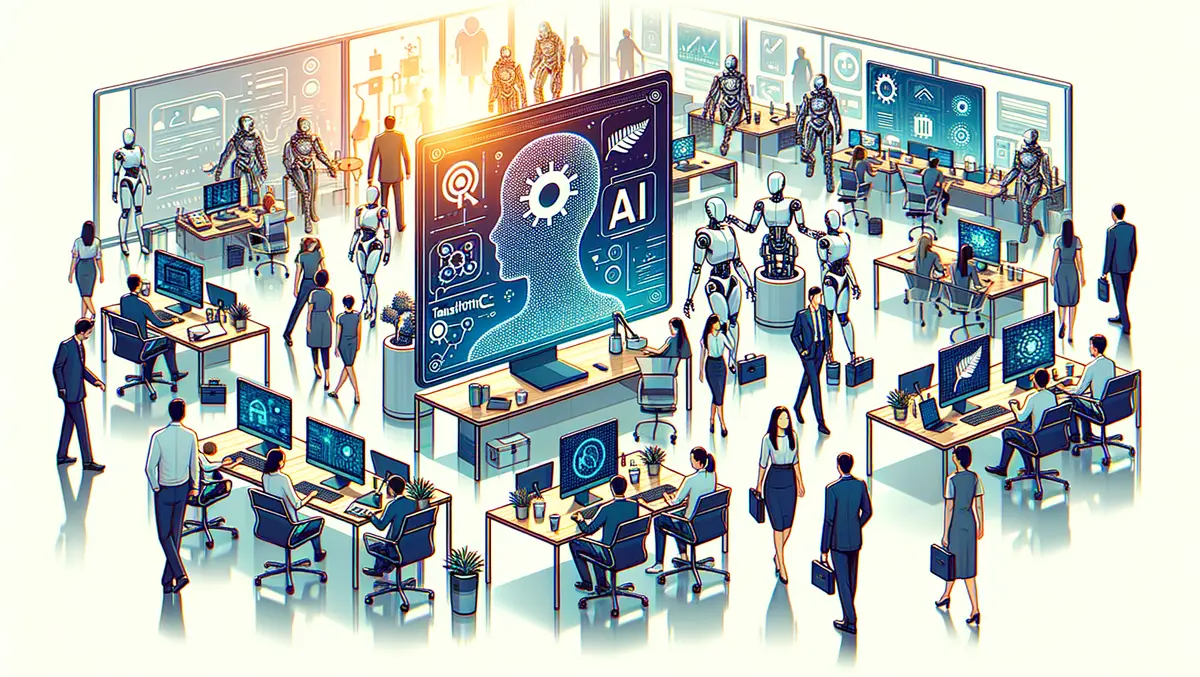
AI's role in shaping future workplaces explored in annual Work Trend Index
The annual Work Trend Index, a collaboration between Microsoft and LinkedIn, has provided a comprehensive view of how artificial intelligence (AI) is reshaping working environments and labour markets. The report amalgamates data from 31,000 knowledge workers and leaders from 31 countries, as well as telemetry data and LinkedIn jobs and labour data, providing insight into the current status of AI in workplaces.
According to Lucy Debono, Modern Work Business Director at Microsoft Australia and New Zealand, "2024 is the year AI at work will become real." The report suggests that organisations using AI for growth, managing costs and providing increased value to customers are set to outstrip competitors. Furthermore, Debono states that AI will play a significant role in reshaping not only the labour market but also the manner in which employees experience their work.
Three main themes emerged from the Work Trend Index, the first of which highlights that employees are ready for AI adoption and, in the case of New Zealand, are introducing it into their workplaces proactively. In fact, New Zealanders are among the highest global adopters of generative AI, with 84% utilising the technology at work; a number surpassing the global average of 75%. As a result, New Zealand leaders express concern that their organisations lack the comprehensive plan necessary to implement AI.
The second theme revolves around AI skills and the advantage they afford jobseekers. The data supports the notion that employees with AI skills will have the upper hand. This is especially significant for New Zealand, as an increase in unemployment to at least 5% by the end of 2024 is anticipated.
Globally, 39% of LinkedIn users have received AI-related training from their companies. The importance of AI skills has led to a significant increase in the number of professionals upskilling independently. Matt Tindale, Managing Director of LinkedIn Australia and New Zealand, emphasises that while employers value new employees with AI skills, an opportunity exists in investing in the development of existing workers through AI tools and industry-specific training, subsequently providing a return on investment.
The last theme from the report is the emergence of AI power users. These individuals are reimagining business processes and becoming more efficient, saving about 30 minutes per day. Encouragingly, eight in ten Kiwi power users frequently begin their workday with AI or use it in preparation for the following day. Over 90% of these power users profess that AI makes their workloads more manageable and enjoyable. However, there is room for improvement as the level of engagement from business leadership in New Zealand lags behind other countries. This could potentially impact the return on investment from AI.
Alongside the launch of the Work Trend Index, Microsoft introduced Copilot for Microsoft 365, a new innovation designed to aid users in adding context to their AI prompts and making the most out of generative AI technology.
In a bid to empower professionals at all levels to boost their AI aptitude, LinkedIn has made available more than 50 free learning courses for those eager to get ahead in the game.


